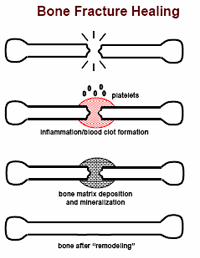- Home
- Medical news & Guidelines
- Anesthesiology
- Cardiology and CTVS
- Critical Care
- Dentistry
- Dermatology
- Diabetes and Endocrinology
- ENT
- Gastroenterology
- Medicine
- Nephrology
- Neurology
- Obstretics-Gynaecology
- Oncology
- Ophthalmology
- Orthopaedics
- Pediatrics-Neonatology
- Psychiatry
- Pulmonology
- Radiology
- Surgery
- Urology
- Laboratory Medicine
- Diet
- Nursing
- Paramedical
- Physiotherapy
- Health news
- Fact Check
- Bone Health Fact Check
- Brain Health Fact Check
- Cancer Related Fact Check
- Child Care Fact Check
- Dental and oral health fact check
- Diabetes and metabolic health fact check
- Diet and Nutrition Fact Check
- Eye and ENT Care Fact Check
- Fitness fact check
- Gut health fact check
- Heart health fact check
- Kidney health fact check
- Medical education fact check
- Men's health fact check
- Respiratory fact check
- Skin and hair care fact check
- Vaccine and Immunization fact check
- Women's health fact check
- AYUSH
- State News
- Andaman and Nicobar Islands
- Andhra Pradesh
- Arunachal Pradesh
- Assam
- Bihar
- Chandigarh
- Chattisgarh
- Dadra and Nagar Haveli
- Daman and Diu
- Delhi
- Goa
- Gujarat
- Haryana
- Himachal Pradesh
- Jammu & Kashmir
- Jharkhand
- Karnataka
- Kerala
- Ladakh
- Lakshadweep
- Madhya Pradesh
- Maharashtra
- Manipur
- Meghalaya
- Mizoram
- Nagaland
- Odisha
- Puducherry
- Punjab
- Rajasthan
- Sikkim
- Tamil Nadu
- Telangana
- Tripura
- Uttar Pradesh
- Uttrakhand
- West Bengal
- Medical Education
- Industry
New drug to help bones heal faster, better

London: Researchers from the University of Southampton are developing a new type of drug that may help bones heal faster and better.
Using bone samples from people undergoing hip replacement surgery, the researchers were able to show that the drug - a protein that activates a molecular pathway called the 'Wnt' pathway - causes stem cells found within bones to divide and to turn into more bone cells.
The Wnt pathway plays a fundamental role in development and disease in humans as well as animals. It is involved in controlling the growth of stem cells, which are amaster cells' that help restore tissues after injury.
Most fractures heal completely by themselves, but some take over six months to heal, or never heal at all.
"Through our research, we are trying to find ways to chemically stimulate Wnt signalling using drugs. To achieve this, we selectively deliver proteins and other molecules that change Wnt signalling specifically to stem cells, particularly in the bone," said lead author Nick Evans.
"This may help us find cures for many diseases, including bone disease, and speed up bone healing after fracture," Evans added.
However the researchers found that if the Wnt pathway was switched on too long, the regenerative effect was lost or, even reversed.
"This is why it is particularly important to develop technologies for timed and targeted delivery, which is what we have done in this research," he explained.
The research is published in the journal Stem Cells.
Using bone samples from people undergoing hip replacement surgery, the researchers were able to show that the drug - a protein that activates a molecular pathway called the 'Wnt' pathway - causes stem cells found within bones to divide and to turn into more bone cells.
The Wnt pathway plays a fundamental role in development and disease in humans as well as animals. It is involved in controlling the growth of stem cells, which are amaster cells' that help restore tissues after injury.
Most fractures heal completely by themselves, but some take over six months to heal, or never heal at all.
"Through our research, we are trying to find ways to chemically stimulate Wnt signalling using drugs. To achieve this, we selectively deliver proteins and other molecules that change Wnt signalling specifically to stem cells, particularly in the bone," said lead author Nick Evans.
"This may help us find cures for many diseases, including bone disease, and speed up bone healing after fracture," Evans added.
However the researchers found that if the Wnt pathway was switched on too long, the regenerative effect was lost or, even reversed.
"This is why it is particularly important to develop technologies for timed and targeted delivery, which is what we have done in this research," he explained.
The research is published in the journal Stem Cells.
Next Story


